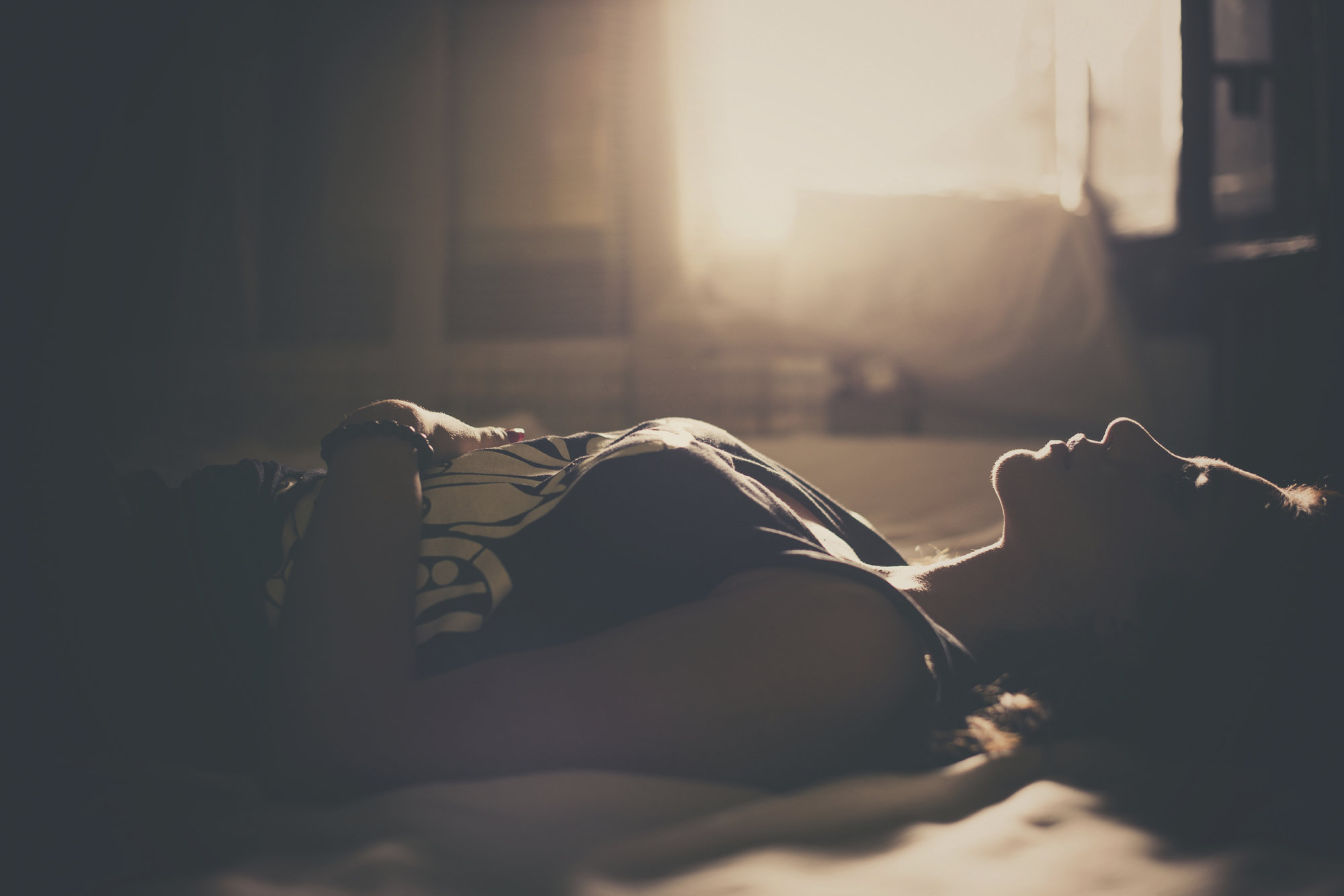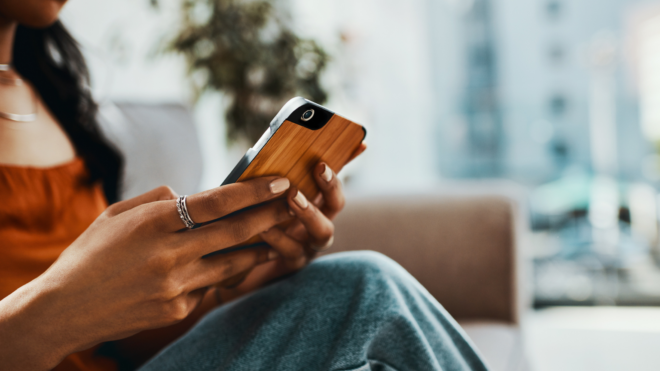
If you line up a group of 200 women, at least one will suffer from anorexia. At least two or three out of 100 women will have bulimia. That adds up to 20 million women in the United States suffering from at least one form of an eating disorder in their lifetime.
But for all the women and girls who suffer from the diseases, there are handfuls of people who just don't understand.
To combat the stigma, Revelist reached out to our networks and asked eating disorder survivors to share their stories, but more specifically, the one thing they wish people knew about their battle.
What they had to say was equally as moving as the struggles they've overcome.
Trigger warning: disordered eating
Amanda K.
My personal experience with an eating disorder was a roller coaster ride of the highest of highs and the lowest of lows. The trigger that made my eating disorder come about was bullying. Not physically, but mentally being bullied throughout my entire school career. I started off pretty mildly. I just started to exercise and diet. Then I started counting calories. That's when it all began. I couldn't go a second without criticizing my body, comparing my body to others. I couldn't even go out to eat without finding the lowest calorie item on the menu. As my relationship with Ed grew more, my relationship with family and friends dwindled. Then my anorexia spun quickly into bulimia. Bulimia brought on a deep depression. So much hatred against myself. That's when I sought help. My senior year of high school I was in and out of treatment. Relapse after relapse. Until finally I just had enough. That's when I finally started fighting the battle against Ed. Trying to win myself back. It took a while to fully love myself, but that came with time. I just wish the world knew how hard of a battle it is to fight. So many people undermine the disorder and overlook it. They think it's easy to overcome. What they don't realize is you face your demon every day. Unlike a drug addiction, you HAVE to eat. Food is a part of everyday life. It's a matter of changing the thought of food being evil, to food being a necessity to your health.
Liz S.
I developed an eating disorder around age 15. I'm 25 now and still battle what I like to call my biggest strength and my biggest weakness. I lost a lot a friends, gave up a lot of opportunities and at points in time lost myself. Now I'm healthy but still struggle with the mental aspect of things. If I could tell the world one thing about having an eating disorder is don't give up on a person you know with [an eating disorder], educate yourself and just be there even if you don't fully understand.
Emily S.
My experience: dancing for a ballet company. There was about 25 girls in my class and we were all competing to be seen and it would came down to who could fit in the costumes for shows. I was on a banana, water and salad diet for about 2 months. Other girls were bulimic to the point they were losing teeth. The worst thing was we were encouraged to lose weight so the boys would be able to pick us up. Eating disorders make and have deep wounds that sometimes never heal.
Laura Q.
Eating disorders are NOT about vanity. They are often misconstrued in this way, but like any other disorder it is not something you choose.

Michelle R.
Wish the world knew just how much you have to hate yourself to deprive your body of food. I wish they knew how the physical repercussions can last for a lifetime and you'll always blame yourself for your stomach problems, your hair falling out, your sometimes massive weight gain post-recovery. It's so difficult when you lose that much weight and people tell you how wonderful you look even though you're trying your best to remember that you are not your weight. The thoughts never really go away, but it gets easier. The most important thing is having the support of friends and family, even if they can't understand how or why this is happening. Patience and self-love.
Chloe W.
When I arrived at school, I had been seeing different doctors, therapists and nutritionists for about 6 years. I spent a portion of my sophomore year of high school in a treatment center, where I learned a tremendous amount about myself, about the importance of having a support system and about the way our culture breeds and masks eating disorders. For example, eating disorders have the highest mortality rate of any mental illness. It shows up on death certificates as related causes, like heart failure or even suicide, but rarely is the underlying cause given much attention. I get that that is really depressing, but I think it really goes to show how serious this disease can be when it's under rug swept, as it so often is. This is something we need to be talking about.
Nichole
I wish more people understood that it's everyone's job to teach young people, especially young women, that their worth is not tied to their weight. What I want people to know about eating disorders is that they do not discriminate. There is no room for judgement. None of my friends had even the slightest idea about mine prior to me coming out about it. Be kind and open minded, always.
Meredith N.
I started showing signs of restriction at age 14. It didn't really get bad until I was 16/17. I lost my period for over a year, you could see my ribs and hip bones. My mind was preoccupied solely by the number on the scale and the calories going into my body. Every day was a blur. I don't remember much of high school because I didn't have enough energy to really pay attention to what was going on. I was on the brink of passing out any moment, every day. To this day I still struggle with eating, but I hope that I can find that happy medium where I can portion out my food and keep control. It's not something you can just decide to stop in its tracks. It's a habit, an obsession really, that's completely ingrained in your mind, and it takes over. Those suffering from eating disorders need others to back them up, but those suffering need to want to help themselves. Don't tell someone to "just stop." Guide them in the right direction for them to get the proper treatment they need.
Olivia D.
I used to check myself, check my hipbones, check my collarbones, make sure everything was protruding and in it's right place.
I didn't care if I died. I didn't care about the long-term effects.
I just wanted to be thin.
In September of 2009, I was 120 pounds and by March of 2010, I weighed 89 pounds. My skin was gray. My bones hurt.
I looked like shit.
I never felt proud of my weight loss. Never flaunted it.
Fast forward a few years and I've graduated college, landed a good job, and wanted more from life. And somewhere in that time, the ED got swept to the side. It was no longer a priority. I think distraction played a large part in this.
But it'll never be enough. I'm thinking about food right now. I thought about how to eat less this morning and yesterday and for the past seven years. Every day I make a choice to eat or not eat. And that's something that I don't think people realize. Anorexia wasn't a choice, as badly as I wanted it to be. It will be something that's forever with me. It's scary how accessible the images and stories we see online are and how influential they can be. And how influential friends and peers can be. I'm currently making the choice to be healthy. I have people that I care about and responsibilities in my life that require me to be at my best.
And who knows? This could change.
A year from now, will I still be choosing to be healthy or will I invite my ED back into the picture?
February 21-27 is National Eating Disorder Awareness Week. If you our someone you know is struggling with an eating disorder, visit Nedawareness.org or call 1 (800) 931-2237 for help.



